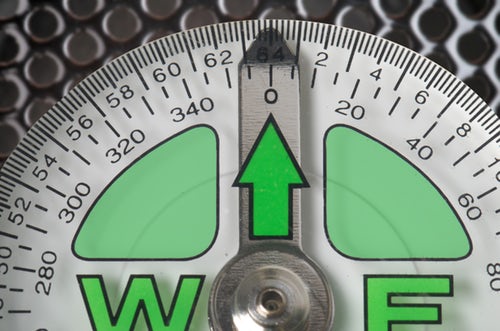This past Monday I spent a long time with God, seeking His will, looking for some much-needed encouragement and affirmation, and just abiding joyfully in His presence.
I was celebrating another revolution around the sun, and I wanted to spend the day alone, taking stock of my last year (which was a big one) and peeking (just a little) into the next.
I know a lot of respected Bible teachers believe God has already spoken to us through His word, and that’s it, but I’ve been conversing with Him enough for the last fifty years to know He still—through His Holy Spirit—brings us comfort, direction, dreams and “voices.” All you have to do is read the conversion reports flooding in from around the world.
Maybe some of us aren’t hearing God’s voice because we’re too distracted, we’re not listening for it, aren’t attuned to or sensitive to it, and we really don’t think He’s going to speak to us anyway.
But just exactly how do you know it’s God talking back to you when He does talk?
It’s probably one of the biggest and most frequent questions Christians ask: “How do I know it’s God?”
Getting some answers—
Guideposts addressed this question in their October/November issue of their Mysterious Ways magazine. They sought answers to “The Big Question: How do you know it’s God?” The answers were compiled by Associate Editor Hilary Ribons. Here’s what she gathered through her research.
“It is normal and wise to contemplate if a dream or an impression you’ve gotten in prayer is really from God. Merely ask yourself two questions: 1) Does it line up with God’s Word? If no, the message is not from God because he will never contradict himself. And 2) what feeling does it leave me with? If it is fear, it is not from God. His Word says he has not given us a spirit of fear, but of love.”
—Laura Harris Smith, Pastor and author of Seeing the Voice of God: What God is Telling You Through Dreams and Visions
“When people have dreams or visions from God, they’re unmistakable. I don’t think there’s a word in our vocabulary that can describe the feeling of peace and the all-consuming love that visions from God give us. The message will be immediately clear and personally meaningful. There’s nothing ordinary about them. It will be so impactful that it will awaken something inside of you.”
—Katherine “Kate” Hyland, author of 23 Years, 23 Minutes, 13 Angels
“The best way to confirm whether you’ve heard the voice of God is to compare it to the Word of God. If what you hard is echoed in the Bible, it’s likely the voice of God. It it’s not in his Word, it’s not his voice.”
—David R. Smith, Pastor and author of Christianity…It’s Like This
“We know it’s God because his guidance does not originate with our will or desire. God gives us other options that aren’t in our normal agenda. As we learn ourselves, and who we are, we also learn who we’re not. So when God’s voice comes through our thoughts, we can recognize it.”
—Shawn Bolz, author of Translating God
“In the New Testament, whenever God speaks, he confirms it through other people. That’s how we too know we’ve heard—when the Holy Spirit speaks to someone else at the same time. God’s way of confirming is through the safety of multiple witnesses in the community.”
—Tanis Harris, author of God Conversations
Spending a lot of time in God’s word reveals a lot to you too, at times when you’re ready to hear what He’s said in that Word and what He’s saying to you right here and right now.
My Monday time with Him more than served its intended purpose. Through His word, another believer, and an otherworldly sense of peace and joy, I was lifted up and am better able to face this next year. To move forward in faith, with complete trust in God.
Join me on Monday, March 4, when I reveal a little of what I learned. I know many of you will find His revelation to me helpful too!
If you’re reading this early Friday, March 1 morning, I’d appreciate a little prayer for the surgery I’m undergoing to repair a torn meniscus in my right knee and clean up some arthritis I have under my kneecap and on my femur. Thanks
If you’re interested in reading more quotes answering how you know it’s God speaking to you, head over to Guideposts.org/HowDoYouKnow.
Until next month, keep searching for His still small voice. The One C.S. Lewis referred to as “the hound of heaven.”
Blessings,
Andrea
“Certainly there was an Eden….We all long for it, and we are constantly glimpsing it.” —J.R.R. Tolkien


